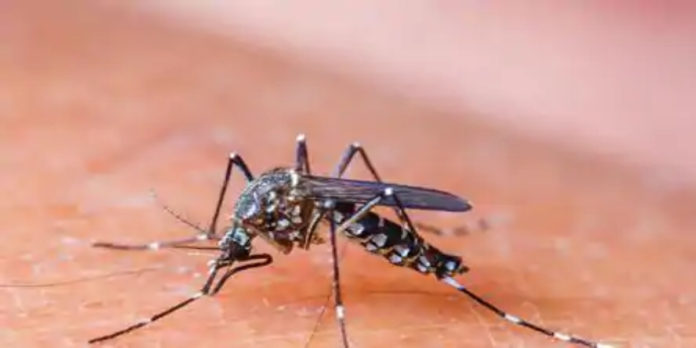KARACHI: Rehana Peter has been working at the Covid-19 ward of a local hospital for the past one year. Luckily she had not contracted the deadly disease as she strictly followed social distancing rules and other virus-related standard operating procedures (SOPs).
However, despite her efforts to remain healthy, she eventually caught the dengue virus last month. Peter claimed the government was responsible for her health situation as the health authorities concerned did not initiate an anti-dengue drive to eliminate the larvae.
“It took me a month to recover, I had to borrow money to run the kitchen at home and meet my medical expenses. After recovering, I didn’t have the money to pay the bills,” she commented.
“The new dengue season has started and mosquitoes are roaming freely. I have to sleep on the rooftop of my house because of prolonged loadshedding,” she complained.
Peter feared that she may catch the disease again. “Despite my recovery, I have to be cautious due to the city’s rising temperature couple with the number of patients still reporting to hospitals.”
According to the Sindh health department, six deaths have been reported due to dengue this year while 2,460 confirmed cases had been reported across the province so far.
Dr Kaleem Khoso, a member of the Young Doctors Association at Jinnah Postgraduate Medical Centre (JPMC) in Karachi claimed that several suspected cases of dengue had reported at different hospitals of the metropolis and the government seemed helpless to counter the threat. “Mosquito larvae have been found in every nook and corner of the city.”
He believed that the Sindh government needed to start an anti-dengue campaign before the cases started rising.
“Last year the cases continued to rise in September, October, November and December, resulting in several deaths. The local residents should stock up on anti-mosquito spray and cover water pots to avoid the spread of the disease.”
According to Aslam Khan, head professor at University of Health and Science (UHS) Lahore’s Department of Human Genetics and Molecular Biology, negligence on the part of the provincial government was most likely to cause an outbreak of the potentially deadly virus.
“It is breading season and larvae [have] emerged everywhere in the metropolis. People must take proper care,” the professor stressed.
Dr Farhan Gohar, who worked at JPMC’s dengue ward said there is no specific treatment for dengue fever. “Adequate fluid intake and complete bed rest are important for quick recovery.”
He further said symptoms of the disease include fever, severe headaches, body aches, joint pain, loss of appetite, nausea and skin rashes. He suggested that people, who had these symptoms, should immediately see a physician and get their blood samples examined from a certified laboratory.
He asserted that public campaigns to raise awareness about the disease and to eliminate mosquito breeding sites were important. “However, the people also need to act in their individual capacity by ensuring good hygiene at their homes.”
